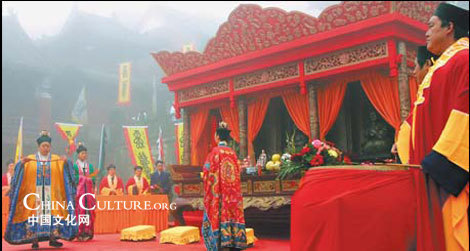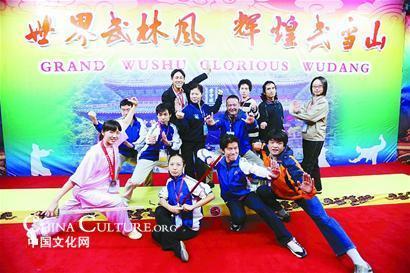
A total of 93 Russian athletes visited, many of whom had attended and won titles at the previous two events held in 2004 and 2006 in Zhengzhou, Henan province.
The kungfu gathering in Shiyan attracted at least 2,000 contestants, aged between 4 and 86, from 69 countries around the world, competing for 300 coveted awards, said Wang Xiaolin, chairman of the Chinese Wushu Federation and secretary-general of International Wushu Federation (IWUF), a key organizer of the event.

The IWUF, founded in Beijing in 1990, gained official recognition at the 113th Convention of International Olympic Committee (IOC) in February 2002.
At the same time, wushu, too, became a sport genre officially recognized by the IOC. Although wushu has failed to become an Olympic event, it has won increasing popularity among people, especially youths around the world, Wang noted.
For instance, over 100 million people in 120 IWUF member states in five continents are practicing tai chi and other Chinese martial arts, according to Wang.

"The championships offer a rare chance to promote many traditional Chinese martial arts that were previously unknown to the outside world," said Liu Jinzu, 73, a veteran fengshou quan master from Gansu province.
Fengshou quan (literally "hands blocking fists") is a time-honored martial art genre popular in Northwest China. It used to be a must-have, lethal technique for security guards who escorted caravans of expensive goods and jewelry.
As it was taught among selected disciples in secrecy and had a strict training system, the traditional Chinese wushu style is little known even to most Chinese kungfu practitioners, according to Liu, a retired technician who began learning kungfu from his father at the age of 7.

There are still less than 200 people in Xinjiang, Qinghai, Gansu and Ningxia who practice fengshou quan, said Liu who has invested much of his energy in training his grandson, Liu Kezhong, a 16-year-old silver medalist at the championships.
By Zhu Linyong










